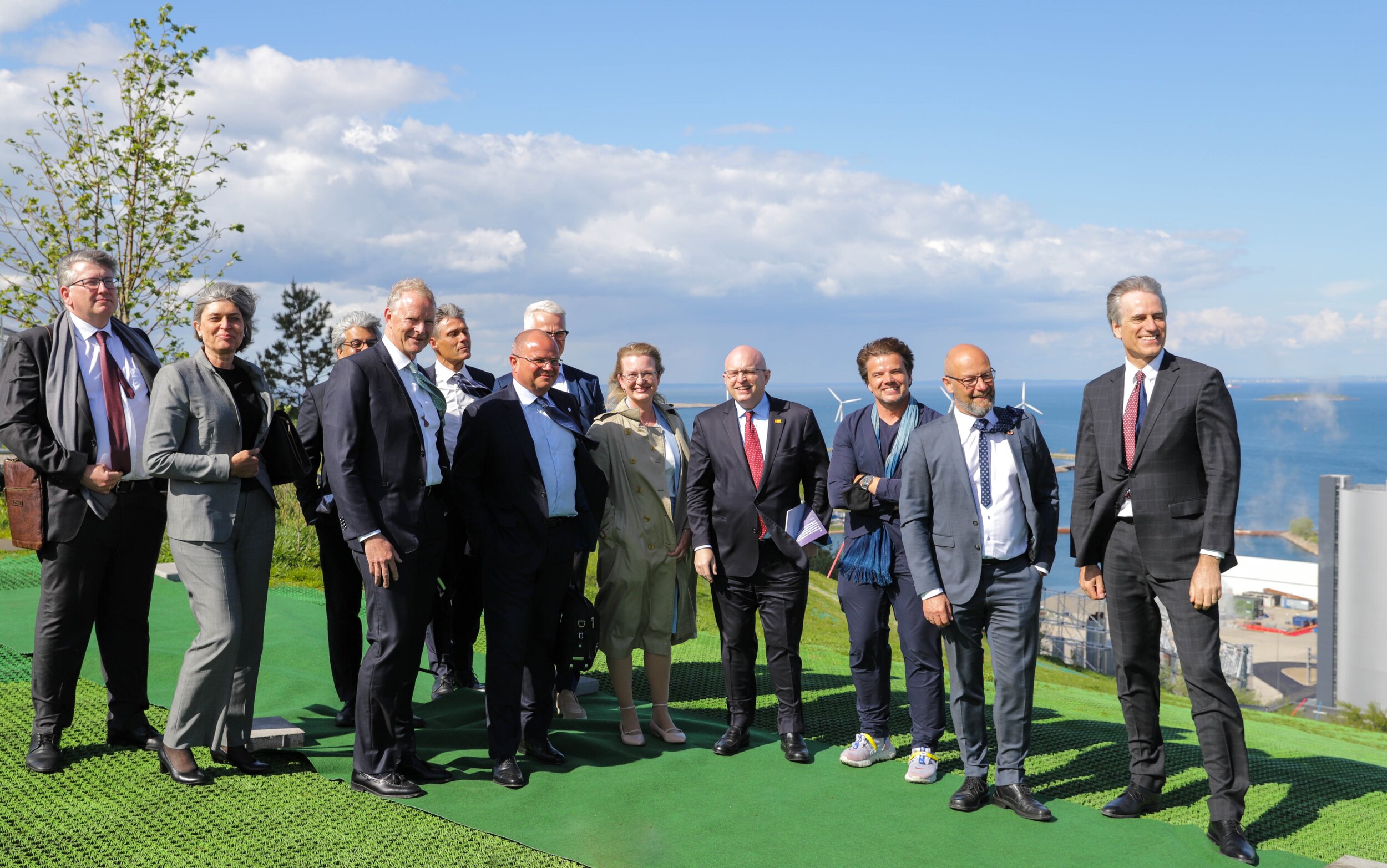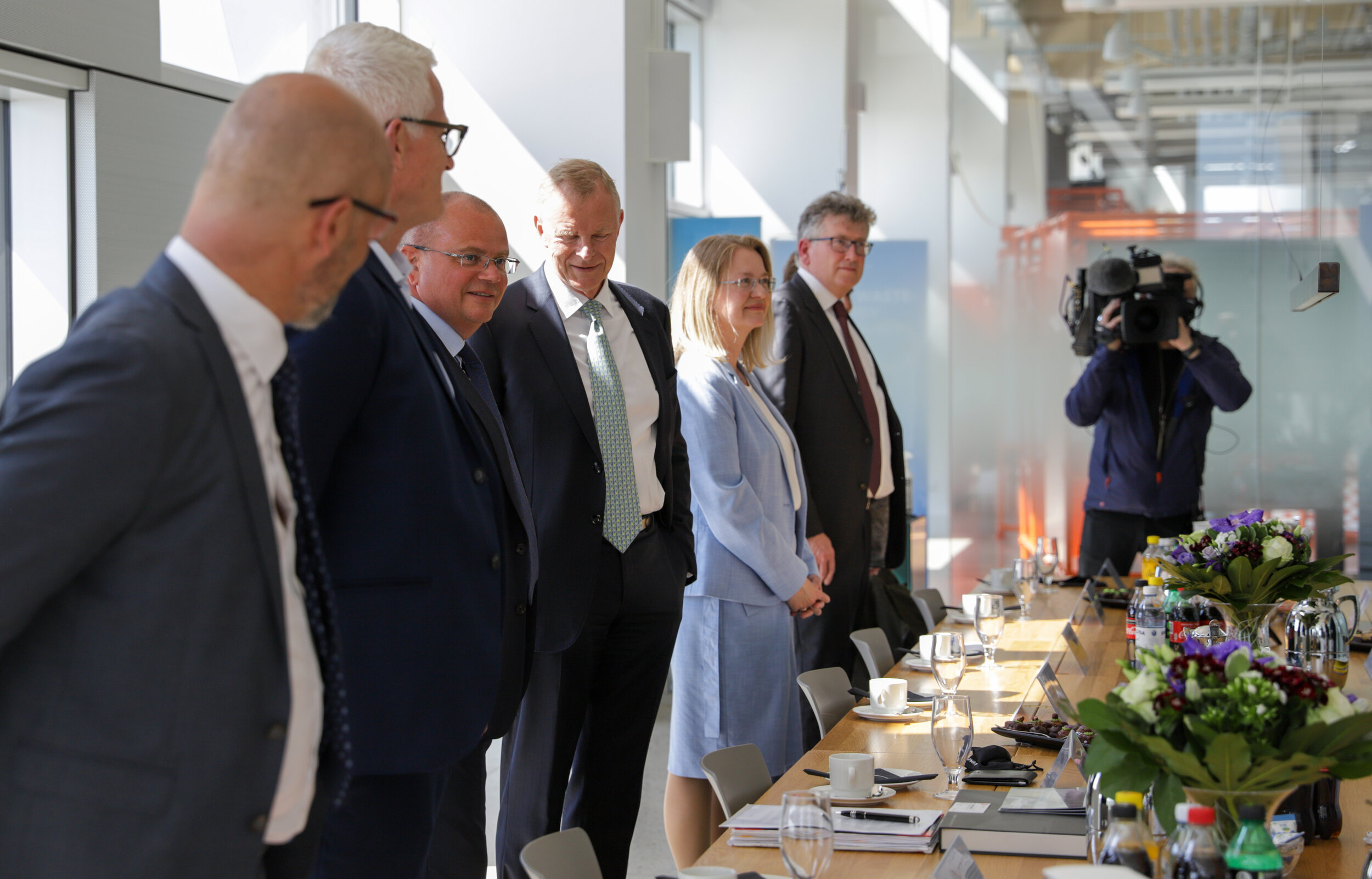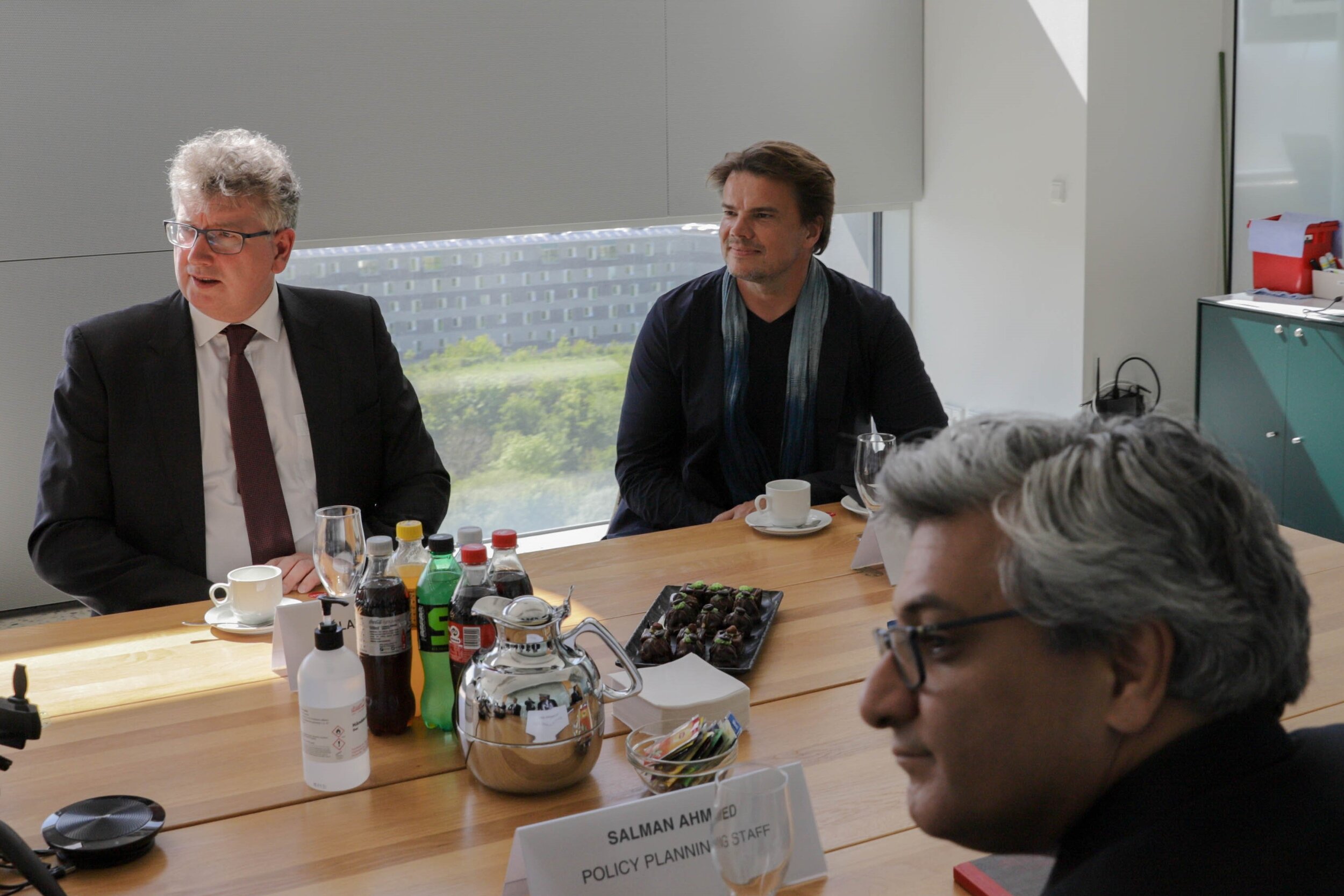Ocean Rainforest invited to meet US Department of State
During Secretary Blinken’s visit to Copenhagen, Denmark on Monday May 17, a delegation from the US Department of State met with a selected group of leaders, innovators, and pioneers from the Kingdom of Denmark. Led by Acting Assistant Secretary Philip Reeker, the roundtable discussion focused on the transition to green technologies and novel, transformative strategies to combat climate change. Ocean Rainforest was honored to be invited to the meeting with industry leaders, including Ørsted, Vestas, Haldor Topsoe, Novo Nordisk Foundation and BIG Architects.
As a potentially valuable, yet largely underutilized resource, seaweed can be used as an additive in human food and animal feed, a means to reduce methane emissions in ruminant animals and a replacement for fossil-based products such as plastic and fuels.
Seaweed cultivation is well-suited to become an integral part of the “energy islands concept” given that seaweed farms allow us to more efficiently utilize ocean space while simultaneously enriching the surrounding marine ecosystems.
Ocean Rainforest has developed a scalable seaweed cultivation system for offshore and nearshore locations that has been extensively tested in the Faroe Islands in the North Atlantic.
The company also serves as the prime contractor for a project team working to demonstrating the feasibility of a similar system off the coast of California in the Pacific Ocean with significant funding support from the ARPA-E Mariner program in the US Department of Energy.
At the meeting, Ocean Rainforest drew special attention to the immediate challenge regulatory hurdles pose to developing the industry given that permitting large-scale, offshore operations requires substantial due diligence across an array of local, state, and federal agencies – an endeavor that is quite costly and time consuming.
The difficulties of permitting seaweed cultivation sites persists throughout coastal countries across the Atlantic Ocean. These regulatory processes must become more efficient before the industry will be able to realize the full potential of sustainable social, environmental, and economic impact.
As Ólavur Gregersen – CEO at Ocean Rainforest – acknowledged: “Ocean Rainforest is keen to participate in transatlantic initiatives and is eager to collaborate in sustainable ocean energy projects by growing seaweed while making a unique contribution to our blue planet.”






